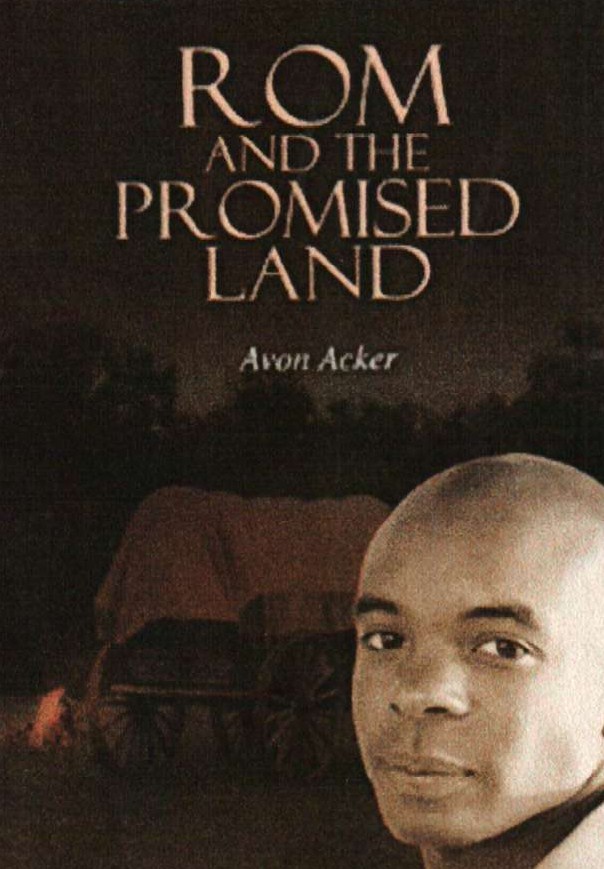Today, Avon Acker tells us about a freed slave who makes a great d eal of money and then uses it to provide homesteads for other slaves. It’s a fascinating historical fiction novel and I think you’ll enjoy Acker’s description of it. This is Acker’s first novel. Here’s his story.
eal of money and then uses it to provide homesteads for other slaves. It’s a fascinating historical fiction novel and I think you’ll enjoy Acker’s description of it. This is Acker’s first novel. Here’s his story.
When the War Between the States ended in 1865, the white plantation owners were left with a major predicament. They owned acres and acres of fertile land with no one to plow, plant, or harvest the money crops of cotton, tobacco and sugar cane. The planters depended on income from these crops to continue their extravagant lifestyles and maintain their lavish homes.
The issue was not that laborers were unavailable. After all there were thousands of newly freed slaves with no way to make a living for themselves and their families. The obvious solution to the problem presented both an economic and social dilemma for the landowners. The economic impact was that in paying the freedmen a living wage, there would be a reduction of profit from the crops and a consequential curtailment of personal lifestyle. The societal impact arose from an inborn revulsion to treating former slaves as an equal and necessary element to economic success. Both of these alternatives were unacceptable to the landowners.
 To solve the problem, the planters established an agricultural system they hoped would maintain a stable, low-cost, labor base without compromising profit or racial division. The new system was known as sharecropping. The landowners broke up their plantations into forty or fifty acre farms and invited black families to work the land on shares. The owner would furnish the land, and the sharecropper would provide the labor.
To solve the problem, the planters established an agricultural system they hoped would maintain a stable, low-cost, labor base without compromising profit or racial division. The new system was known as sharecropping. The landowners broke up their plantations into forty or fifty acre farms and invited black families to work the land on shares. The owner would furnish the land, and the sharecropper would provide the labor.
Impoverished freedmen with no other options to feed their families were forced to enter into contracts most of them could not even read. The contract usually required the sharecroppers to purchase all seed, supplies, food and other subsidence necessities from stores owned by the landowners at exorbitant prices. The sharecroppers were required to sell their crops to the landowner who, of course, set the prices for the crops. Adherence to these contracts ensured the freedmen remained in debt. In Louisiana the plantation owners were able to get a law passed preventing sharecroppers from leaving if they were in debt to the owner. Obviously, the newly freed slaves were for all intents and purposes still in slavery.
When former slave Rom Decker returned to Rapides Parish, Louisiana from an extended and profitable buffalo hide hunting endeavor, he was outraged at how his people were being exploited and decided to do something about it. At the age of five, Decker, was bought, along with his mother, grandmother, and sister, by a white planter named Louis Guidry and promptly freed. Raised like one of the family by the Guidrys, Rom received an excellent education. In addition, Louis Guidry and his sons were proficient with weapons and passed those skills along to their young employee. Blessed with natural strength and athleticism, Rom became an accomplished fighting man.
Putting the small fortune he earned killing buffalo in the bank, Rom went to the Verde Valley in Arizona and staked out land declared eligible for homesteading. Arriving back in Rapides Parish, Rom paid the debts of the sharecroppers desiring to leave. He then organized and outfitted a wagon train to take twenty-five families of former slaves away from their demeaning lives in Louisiana.
Acutely aware that escaping from repression is extremely difficult, Rom knew it would take all his courage, intelligence, and resources to lead his people to a new beginning in Arizona. There are many obstacles to overcome such as; savage Indians, racial prejudice, harsh terrain, as well as landowners determined to keep them in bondage. Rom keeps his eye on the Promised Land and along the way he finds love and a new faith in his creator, allowing him to accept the personal tragedies occurring on their journey.
Rom and The Promised Land is a historical fiction that both educates and entertains. The reader will come away enlightened not only about the mismanaged Reconstruction years following the Civil War, but also about how those struggles continue to challenge Black Americans in their quest to integrate into American culture.
Rom and The Promised Land is available on Amazon both paperback and Kindle, and Barnes & Noble both paperback and Nook. The book can also be ordered from the authors website http://www.avonacker.com
Leave a comment if you have a moment. (We have a very simple CAPTCHA – easy to use.) We’d love to hear from you – what you liked and what you think needs to be changed. Thanks. James Callan

Avon, your fast-moving action/adventure kept me hopping through the pages. So many hardships tested the mettle of Rom and others. His faith in the Lord was quite evident, especially through the prayers he uttered for God to save his family. What dedication! Thanks for sharing this story with us.
Thanks for the comment, John. That is about as good a recommendation as a book can get.
I’ve read Rom and the promised land twice now. It is a very exciting book. I’m looking forward to Rom’s next adventure.
I’ve read Rom and the promised land twice now. This is a very exciting book. the wild west meets the Ten commandments. Rom is a true American hero long over due if you ask me. I know we will hear more from Rom. I am certainly ready for more.
I have read Avon’s previous work and enjoyed the book. Looking forward to finishing the new book he has out. Both books are worth the time to read.
Thanks, Majel. Good information to have – and better yet, to pass on to others.
Avon, for those who are unaware that you have another novel out there, I’d like to say VIGILANTE CARETAKER is another great read. Covers Texas and Northeast Texas ground and gives a real feel for the life and times of the characters.
Thanks for the comment. I feel the same way. An interesting story line.
The topic for this book is not something I would normally read; however, the write up in this blog was pretty neat and I think it swayed me to take a look at the book, even though it’s not what I would normally read. Thanks for sharing.